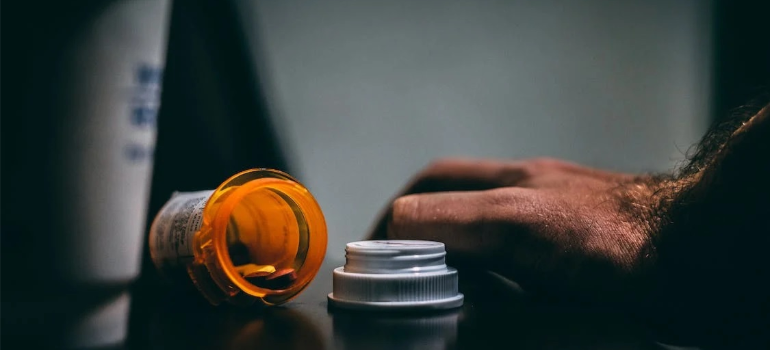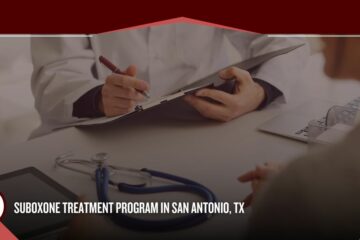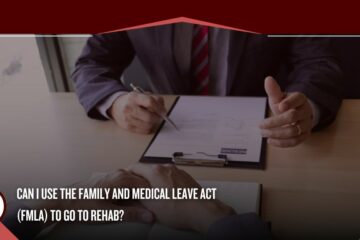Addiction is a complex and challenging battle that many individuals face. While achieving sobriety is a tremendous accomplishment, the risk of relapse is an unfortunate reality that can jeopardize one’s hard-won progress. Thus, when it comes to common addiction relapse triggers, awareness is key. By understanding the factors that can reignite addictive behaviors, individuals in recovery can better equip themselves to navigate the challenges that lie ahead. At Alamo Behavioral Health, we deeply grasp the need to recognize the warning signs of relapse and address it early. By being attuned to the subtle changes in behavior, mood, and habits, both individuals in recovery and their loved ones can intervene early and provide the necessary support. Thus, we will explore the phenomenon of relapse, common relapse triggers, and early warning signs.
What is Addiction Relapse?
Addiction relapse is the recurrence of addictive behaviors after a period of abstinence or recovery. It can be defined as a return to substance abuse or engaging in compulsive behaviors associated with addiction, despite previous efforts to overcome them.
To truly comprehend addiction relapse, it’s crucial to understand the chronic nature of addiction itself. Addiction is a complex disease characterized by compulsive substance use or behaviors, often accompanied by an inability to control cravings. It is a chronic condition that requires ongoing management and support.
The cycle of addiction and relapse is a common pattern that individuals with addiction face. It typically involves three stages:
- initial use
- escalation into addictive patterns
- subsequent relapse through common addiction relapse triggers after periods of abstinence

This cycle can feel frustrating and disheartening, as it often repeats unless effective interventions and relapse prevention strategies are implemented. The chronicity of addiction and the cyclical nature of relapse is crucial in developing a comprehensive approach to recovery, focusing not only on initial abstinence but also on long-term maintenance and relapse prevention strategies. It’s this knowledge that centers for drug detox Texas offer and base their programs on, enabling relapse prevention strategies.
How Common Is Addiction Relapse?
Addiction relapse is, unfortunately, a common occurrence for individuals in recovery. Statistics on addiction relapse rates reveal the challenges faced by those striving to maintain sobriety. Studies indicate that approximately 40-60% of individuals experience relapse within the first year of recovery.
Factors that contribute to relapse can vary, but common triggers include:
- stress
- exposure to environmental cues
- inadequate support systems
- underlying mental health conditions
- unrealistic expectations of recovery
An array of these factors we will explore in due depth just below.
Additionally, the specific substance or behavior involved can also influence relapse rates. For instance, relapse rates for alcohol addiction range from 30-90%, while opioid addiction relapse rates hover around 60-90%. Behavioral addictions, such as gambling or internet addiction, also pose a relapse risk, with rates ranging from 30-60%. Such addictions do share common addiction relapse triggers but vary in other key aspects – such as physical symptoms and their severity.
Still, these numbers highlight the complex nature of addiction and the challenges individuals face in maintaining long-term recovery. It’s these challenges that inform programs for medical detox San Antonio offers, having them build an early relapse prevention strategy for each case.
Understanding the contributing factors and recognizing the varying relapse rates for different substances and behaviors can inform the development of targeted relapse prevention strategies and provide individuals in recovery with a realistic perspective on their journey.
Relapse and Mental Health Disorders
Another key factor, shared among many types of addiction, lies in dual diagnosis. That’s the phenomenon where a substance use disorder overlaps with a mental health disorder, and one fuels the other.
This phenomenon is, unfortunately, rather common. NIDA finds that almost 38% of those with substance use disorders also have mental health disorders, and over 18% of those with mental illnesses also have substance use disorders.
Indeed, the relationship between mental health disorders and addiction relapse is complex and interconnected. When individuals experience both addiction and a co-occurring mental health disorder, the risk of relapse can significantly increase. Without addressing the underlying mental health conditions during addiction treatment, individuals may struggle to maintain long-term sobriety. Mental health disorders can contribute to the development of addiction and vice versa, creating a vicious cycle that can be difficult to break. That’s especially true when the two share common addiction relapse triggers, of which there are many – as we will see.
The presence of untreated mental health conditions can intensify cravings, impair judgment, and hinder the ability to cope with triggers and stressors. This can make individuals more vulnerable to relapse. As such, treating both addiction and mental health disorders concurrently is essential for comprehensive and effective recovery. This is what dual diagnosis treatment centers San Antonio TX specialize at, addressing the interconnected nature of these conditions and reducing relapse rates. By receiving specialized care that combines addiction treatment with mental health support, individuals can develop the necessary coping skills, receive appropriate medication management, and engage in therapeutic interventions to address both conditions.

Is Addiction Relapse Preventable?
It’s important to acknowledge that addiction relapse may not always be entirely preventable. Given the numbers above, for many individuals, relapse may be an unavoidable step toward recovery. However, individuals can take proactive steps to reduce the likelihood of relapse if they pick up on warning signs and avoid triggers.
For this reason, implementing strategies and techniques for preventing relapse is essential. These may include:
- building a strong support network
- practicing healthy coping mechanisms
- setting realistic goals
- developing effective communication skills
- engaging in stress-reducing activities like exercise or mindfulness
Aftercare and ongoing support are also crucial in relapse prevention. Utilizing resources such as counseling, therapy, support groups, and follow-up appointments can provide individuals with the tools and guidance needed to navigate challenges and sustain recovery.
This is particularly valuable in cases of polydrug use, where individuals may combine different substances. For example, centers for alcohol detox Texas offers often have to account for other substances used in conjunction with alcohol.
Common Addiction Relapse Triggers
With introductions in order, relapse triggers can vary widely and are unique to each individual. Understanding them is crucial for individuals in recovery; by identifying their specific triggers, individuals can develop coping strategies, establish healthy boundaries, and seek support to navigate these challenging situations.
The most notable categories of relapse triggers are the following:
- Environmental
- Emotional
- Social
- Celebratory
- Physical
Environmental triggers
Environmental triggers encompass people, places, and things associated with past substance use or addictive behaviors. Being in the presence of old drinking buddies, visiting familiar bars, or encountering drug paraphernalia can evoke powerful cravings and memories, increasing the risk of relapse.
Emotional triggers
Emotional triggers, such as stress, anxiety, and depression, can significantly impact individuals in recovery. When faced with overwhelming emotions, some individuals may turn to their substance of choice as a means of escape or self-medication.
This group will often include psychological triggers and align with dual-diagnosis cases. For instance, PTSD treatment for veterans Texas often accounts for emotional relapse triggers.

Social triggers
Social triggers, including peer pressure and social events, can also pose challenges for those striving to maintain sobriety. Pressure from friends or family members to engage in substance use or attend parties where drugs or alcohol are prevalent can make it difficult to resist temptation.
Celebratory triggers
Celebratory triggers, such as special occasions and holidays, can be particularly risky. Festivities often involve alcohol, and the sense of excitement and celebration may trigger the desire to indulge.
Physical triggers
Lastly, physical triggers, including pain, cravings, and withdrawal symptoms, can have a profound impact on individuals in recovery. Physical discomfort or persistent cravings can undermine even the strongest resolve.
Common Addiction Relapse Warning Signs
Now, common addiction relapse triggers differ from relapse warning signs. What triggers a relapse may not match the symptoms of an impending relapse, so it’s vital to distinguish the two.
As with triggers, warning signs will also differ among individuals. Still, they typically come in the following distinct groups:
- Behavioral changes
- Neglecting self-care
- Emotional changes
- Returning to old habits
- Loss of interest in recovery activities
Behavioral changes
Behavioral changes are significant indicators of potential relapse. When individuals in recovery start exhibiting increased isolation, secrecy, and lying, it is crucial to pay attention. They may withdraw from social interactions, avoid discussing their activities, or resort to dishonesty in an attempt to conceal their substance use.
These behaviors should raise concerns and prompt support and intervention to help prevent a relapse from occurring.
Neglecting self-care
Neglecting self-care is also a significant red flag that should not be overlooked. When individuals in recovery start exhibiting poor hygiene, lack of sleep, or neglecting their nutrition, it is a clear indication of potential relapse.
These signs suggest a declining focus on maintaining their physical well-being, which can have a negative impact on their overall health and stability. As our opioid detox center in Texas has found, this warning sign tends to manifest most commonly in cases of opioid addiction.

Emotional changes
Emotional changes can be significant warning signs of an impending relapse as well. Faced with common addiction relapse triggers, individuals in recovery may experience frequent mood swings, unexplained irritability, and a general sense of apathy or disinterest.
These emotional fluctuations can signal a struggle to maintain stability and coping with internal turmoil.
Returning to old habits
Returning to old habits and behaviors that were once associated with addiction is another strong indicator of potential relapse. When individuals in recovery start visiting places linked to substance use or engaging in risky behaviors, it signifies a potential regression into their previous destructive patterns.
This can reignite cravings and expose them to triggers that increase the risk of relapse. Recognizing these behaviors as warning signs is crucial, as it allows for timely intervention and the implementation of coping strategies to steer individuals back on track toward their recovery journey.
Loss of interest in recovery activities
Finally, when individuals in recovery experience a loss of interest in recovery activities and a decline in their participation in support groups or therapy sessions, it can indicate a weakening commitment to their sobriety.
This disengagement from essential components of their recovery journey may reflect a shift in priorities or a loss of motivation, potentially increasing the risk of relapse. Like all other warning signs, this may manifest in any addiction – but our opiate detox center in Texas finds it’s more common for opiate addictions.
Picking the Right Treatment Providers to Prevent Addiction Relapse
Choosing the right addiction treatment provider is crucial in preventing addiction relapse and ensuring long-term recovery. The best treatment providers should:
- Understand the importance of comprehensive relapse prevention strategies and incorporate them into their programs from the start. They should firmly grasp common addiction relapse triggers and recognize that relapse is a potential part of the recovery journey.
- Offer a range of evidence-based therapies, counseling, and support groups that focus not only on addressing addiction but also on preventing relapse.
- Prioritize ongoing care and aftercare services to ensure individuals have continued support and guidance post-treatment.
They should also offer clear and comprehensive coverage that can help alleviate financial concerns, allowing individuals in need to focus solely on their recovery. Knowing that their treatment expenses are covered, whether it’s with Blue Cross Blue Shield rehab coverage or Aetna rehab coverage, or a third one, provides peace of mind and removes potential barriers to seeking help.
By choosing a treatment provider that understands and prioritizes relapse prevention strategies and offers transparent rehab insurance coverage, individuals can enhance their chances of achieving long-lasting recovery and reduce the risk of relapse.

Recognize Addiction Relapse Triggers and Stay on the Path to Sobriety
Addiction relapse is an unfortunate reality that many individuals face on their path to recovery. However, understanding the common addiction relapse triggers, such as environmental, emotional, social, celebratory, and physical factors, can greatly enhance our awareness and preparedness.
While relapse may be common, it is crucial to remember that proactive steps can be taken to minimize its occurrence. By staying vigilant, seeking support, and implementing relapse prevention strategies, individuals can increase their chances of maintaining long-term sobriety and living a healthier, fulfilling life in recovery.
At Alamo Behavioral Health, we prioritize relapse prevention from the very first stages of rehabilitation. If you or your loved ones are in need of addiction treatment services, our experienced clinicians and staff will leave nothing to chance. Please feel free to contact us today, and let us craft a tailored, memorable, and effective journey to recovery like no other.




